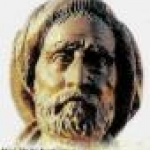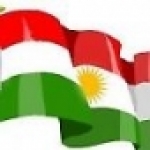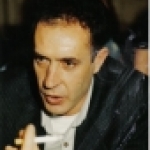Ayaan Hirsi Ali fled fanaticism in Africa—and Holland. So what does she make of her new conservative friends in D.C.?
11 Comments | Add Yours
By Boris Kachka Published Feb 4, 2007
(Photo: Victor Bergen-Henegouwen/Hollandse Hoogte)
To her admirers, Ayaan Hirsi Ali is a maverick, bravely defying the Netherlands' political correctness to address Europe's growing cultural rifts. To detractors, she's a charismatic bomb-thrower with as little regard for her adopted nation's safety as for her own. Both sides would have to admit that the former Somali-Dutch politician is a master of self-reinvention. After a rough childhood (circumcision, daily beatings) in Kenya, Ethiopia, and Saudi Arabia, she escaped to Holland from a forced marriage, eventually joined the Dutch Parliament as a Muslim criticizing her own culture, and made a provocative film with Theo van Gogh that got him killed and sent her into hiding. When a rival threatened to revoke her citizenship, the resulting furor toppled the governing coalition. But Ali just moved on, resigning and moving to Washington, D.C., where she now works for the American Enterprise Institute. It's all retold in her eloquent new memoir, Infidel. Stopping by Soho House recently, she spoke with New York about life and politics in her latest adopted land.
You've been here for six months. How do you like the U.S.?
That is the question they all ask! I love it. The most comforting thing is the anonymity. I'm not allowed to talk about security—to tell you who in this room is security and who is not—but the pressure cooker of Holland is over. I am now just one individual in the melting pot.
You're at a conservative think tank—perhaps an odd place for a harsh critic of religion in political life.
I consider myself nonpartisan, but I'm a liberal—not in the American sense, because Americans seem to refer to communists as liberals. What we see in Europe, because of the welfare state, is government pretending to provide all sorts of services they shouldn't be providing.
But what do you make of Christian conservatives in your ranks?
No one in the American Enterprise imposes their beliefs. We clash, and I think that's what the West is all about.
But you're with them on the whole “clash of civilizations“ thing?
When I was in Holland, the idea was, all cultures are equal and all are to be preserved. My idea was, no, all humans are equal but not all cultures are equal. In the culture of my parents, we never seemed to be able to succeed in such basic issues as getting food, interacting and living in peace with each other, or adapting to our environment, and the West, they've succeeded in all those. I'd been taught Western culture's only bad. Maybe that's good for your self-esteem, but it wasn't taking us anywhere.
You've dismissed accusations that you're lashing out because of childhood traumas. So why write a memoir graphically detailing the abuse you and your siblings suffered?
It became important to say, “Okay, you guys keep accusing me of using my past. Let me tell you my story, and my story shows that I do not blame the death of my sister on Islam. I do not blame female genital mutilation on Islam.“ My whole awakening was triggered by the eleventh of September, and it did not affect only me, it affected a lot of people.
Do you regret certain things you said about Muhammad—like that he was a pervert and a tyrant?
I don't regret that. I'm still convinced that for Muslims to integrate fully into modern society, we cannot avoid discussing the prophet. We didn't only deal with communism militarily, but we said it is a bad idea. The works of Karl Marx were discussed.
Maybe academia would have been a better—and less dangerous—venue.
Politics is not a good thing for me. But I wanted to bring out the issue of Muslim treatment of women in Holland, and I could only accomplish that in Parliament. If I had been a professor, it would just have disappeared in a cabinet.
What are you working on next?
A book called Shortcuts to Enlightenment. It's [about] waking up the prophet Muhammad in the New York Public Library and having him have a conversation with Karl Popper, Friedrich Hayek, and John Stuart Mill. It's a philosophical novel.
If you had citizenship in time for '08, whom would you vote for?
Any candidate who succeeds in uniting. There's peacetime and there's wartime, and you don't need polarization on wartime issues. You need polarization on all other issues. Now there is an enemy from outside wanting to destroy all of us. A true leader is one who says, “I am capable of getting unity on this, on a party level and on a transatlantic level.“
A uniter not a divider? Doesn't sound like Bush.
Bush is not running.








Re: Sayin Hanif ve Hek'e (suntte ve Ayaan Hirsi Ali)